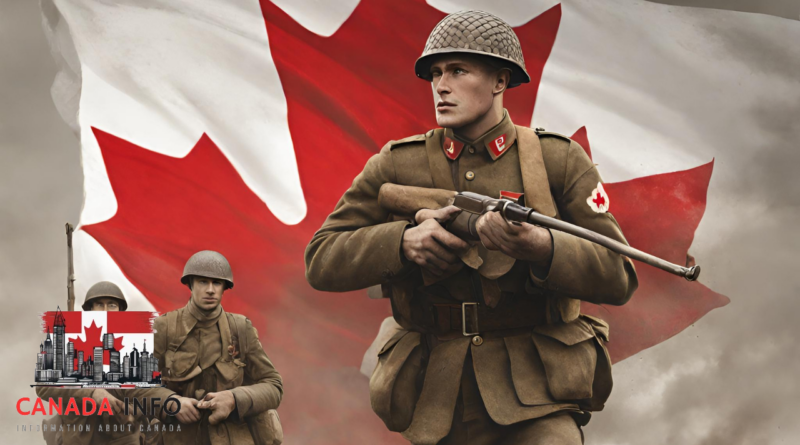Canada’s Role in World Wars and Its Impact on Domestic and Foreign Policies
Canada’s participation in the World Wars left a lasting impact both domestically and internationally. During World War I and World War II, Canada played a significant role in the conflicts, contributing troops, resources, and expertise to the Allied forces. However, the impact of these wars extended beyond the battlefield, profoundly affecting the lives of Canadians in various ways.
Canada’s Role in World War I:
During World War I, Canada emerged as a key player on the world stage. Despite being a relatively young nation, Canada made significant contributions to the Allied war effort. Over 600,000 Canadians served in the armed forces, with many fighting in major battles such as Vimy Ridge and Passchendaele. Canada’s military achievements during the war, particularly the success at Vimy Ridge in 1917, are often cited as pivotal moments in Canadian history.
In addition to its military contributions, Canada provided vital resources and supplies to the Allied powers. Canadian industries boomed during the war, producing munitions, vehicles, and other essential materials needed for the conflict. The war also brought about social and economic changes in Canada, including increased government intervention in the economy and the expansion of women’s roles in the workforce.
Domestic Impact of World War I on Canada:
The impact of World War I on Canada was profound, both socially and economically. The war brought about a sense of unity and nationalism among Canadians, but it also led to significant social upheaval and economic challenges. The loss of life during the war, particularly among young men serving in the military, had a lasting impact on Canadian society.
Economically, the war spurred industrial growth in Canada, as factories ramped up production to meet the demands of the Allied war effort. However, the post-war period also brought about economic uncertainty and inflation, leading to labor strikes and social unrest. The war also had a profound impact on Canadian identity, as the country asserted its independence on the world stage and forged its own path in international affairs.
Canada’s Involvement in Foreign Conflicts:

Following World War I, Canada continued to play a significant role in international conflicts. During World War II, Canada once again mobilized its armed forces to fight alongside the Allies against the Axis powers. Canadian troops fought in major battles such as the Battle of the Atlantic, the Italian Campaign, and the liberation of the Netherlands.
Canada’s involvement in foreign conflicts extended beyond the World Wars, with Canadian troops participating in peacekeeping missions and military interventions around the world. From Korea to Afghanistan, Canadian soldiers have been deployed to various hotspots to promote peace and security.
Impact of World Wars on the Lives of Canadians:
The World Wars had a profound impact on the lives of Canadians, shaping the country’s identity and trajectory. The sacrifices made by Canadian soldiers during the wars are commemorated annually on Remembrance Day, as Canadians honor the memory of those who fought and died for their country.
The wars also brought about social changes in Canada, including advancements in women’s rights and the expansion of the welfare state. The influx of immigrants to Canada during and after the wars helped fuel economic growth and diversify Canadian society.
In conclusion, Canada’s role in the World Wars had far-reaching effects, both at home and abroad. From the battlefield to the home front, Canadians played a crucial role in shaping the outcome of these conflicts and their legacy continues to be felt to this day.

